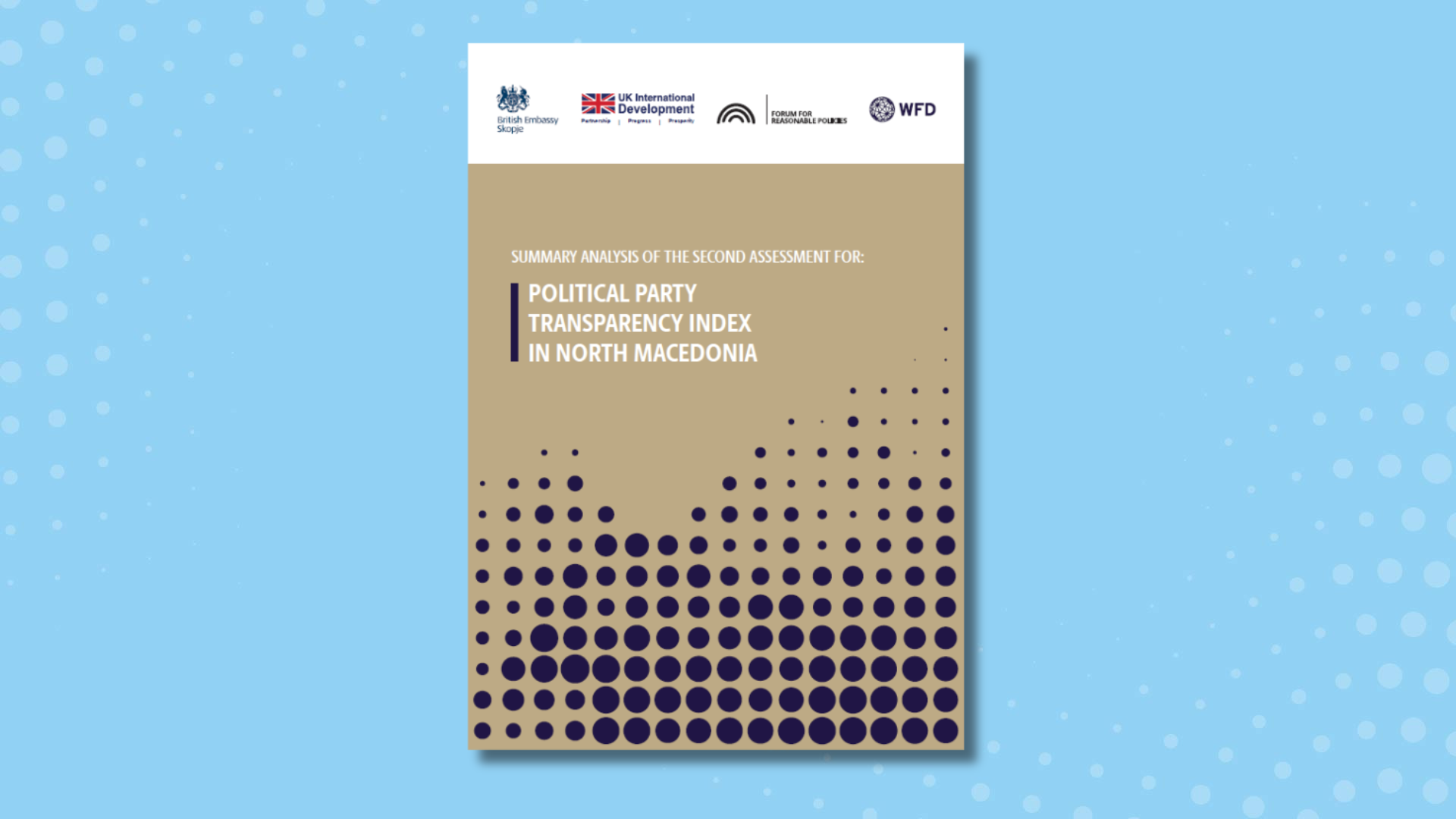The Political Party Transparency Index (PPTI) is a tool developed by the Westminster Foundation for Democracy (WFD) in North Macedonia, in collaboration with the Forum for Reasonable Policies (FRP). Drawing from international best practices and comparative experiences, the index evaluates the transparency of political parties in their public communication, financial practices, and the level of intra-party democracy. Designed as an annual assessment, the PPTI serves as both a benchmark and a roadmap, highlighting areas for improvement within political parties.
The 2024 survey covers eight political parties from North Macedonia: Alternativa, Alliance of Albanians (Zijadin Sela’s wing and Arben Taravari’s wing), Besa, VMRO-DPMNE, Democratic Union for Integration (DUI), Liberal Democratic Party (LDP), New Social Democratic Party (NSDP) and Social Democratic Union of Macedonia (SDSM). Additionally, two new political parties/movements, ZNAM and the Democratic Movement, participated in research and mentoring events organized by the WFD. However, due to the need for a longer-term approach in measuring certain indicators, their inclusion in this year’s evaluation was postponed.
The findings of the report show that both external and internal factors influence the performance of political parties. For instance, the results of the 2023/2024 parliamentary elections and some party restructuring, as well as divisions and factionalism within certain parties, have slowed progress or even led to the formation of new political entities. The extended transition period from old to new leadership has also played a role.
While the index measures each party's progress, it also fosters a sense of competition. The results highlight several parties that made significant strides in improving their operations, benefiting not only themselves but also the public. For the first time, this report includes a comparative analysis of individual party progress, emphasizing that the goal is not ranking, but measuring the individual progress of the respective political party. Notably, smaller parties often demonstrate greater flexibility and receptiveness to improve, while larger parties tend to be slower in embracing reforms. Furthermore, internal crises in larger parties tend to have a more significant impact, hindering intra-party democracy, while smaller parties are typically able to recover more swiftly.
